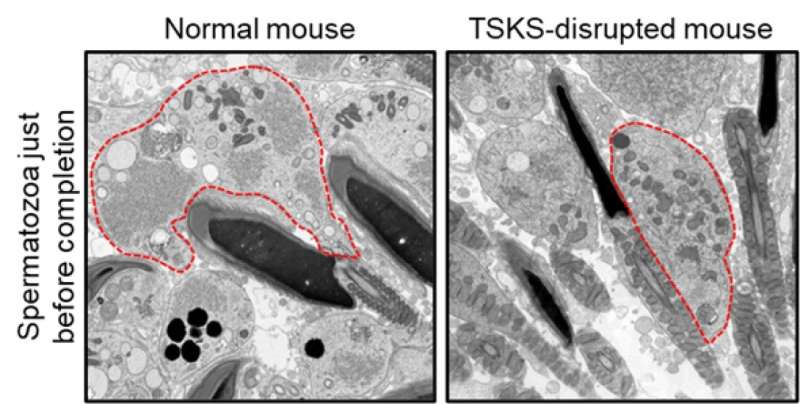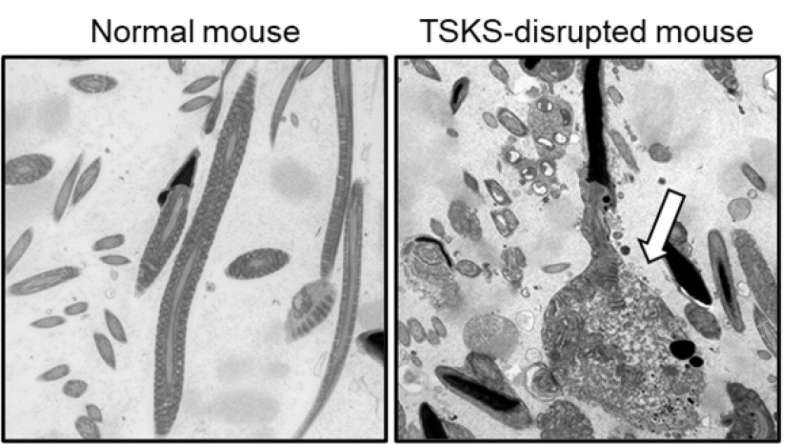This article has been reviewed according to Science X's editorial process and policies. Editors have highlighted the following attributes while ensuring the content's credibility:
fact-checked
peer-reviewed publication
trusted source
proofread
Key protein for streamlined sperm may pave the way for contraceptives for men

In order to achieve good times in their races, many Olympic swimmers wear swimsuits that are low in water resistance. Similarly, spermatozoa, the male reproductive cells, possess a "streamlined" structure to travel more smoothly through the female reproductive tract. Now, researchers in Japan have shed new light on a key protein involved in this process.
In a new study published in the Proceedings of the National Academy of Sciences, researchers from Osaka University have identified the role of a protein called testis-specific serine kinase substrate (TSKS) in the process of spermiation, or the release of mature spermatozoa.
During reproduction, spermatozoa must travel through the female reproductive tract to reach the oocyte, or egg, in order for fertilization to occur. To better facilitate this process, spermatozoa have a "streamlined morphology" that is achieved by eliminating sperm cytoplasm. While this process has been observed in previous studies, the molecular mechanisms underlying it are not fully understood. This led the research team from Osaka University to explore a mouse model targeting TSKS, which is localized to membrane-less structures called nuage.
"Using genome editing technology, we developed a mouse model in which TSKS has been disrupted," says co-lead author of the study Keisuke Shimada. "We found that spermatozoa from the mice with disrupted TSKS failed to develop a streamlined form, resulting in male infertility."

The researchers analyzed the spermatozoa from TSKS knockout mice and found that these sperm were unable to produce two specific types of nuage called reticulated body (RB) and chromatid body remnant (CR). Without these nuage, the TSKS-disrupted sperm could not properly eliminate their cytoplasm. Additionally, the researchers observed that the presence of excess residual cytoplasm led to apoptosis, or cell death, in these spermatozoa.

"Our results showed that generation of RB and CR nuage is dependent on TSKS," says co-lead author Soojin Park. "TSKS is required for sperm to eliminate cytoplasm and adapt a streamlined, tadpole shape. This applies to humans as well, as TSKS is also present in human spermatozoa."
This discovery of the role of TSKS on the formation of streamlined spermatozoa offers more clues on one mechanism behind male infertility. The findings from this study may translate to the development of diagnostic tests and male contraceptives.
More information: Keisuke Shimada et al, TSKS localizes to nuage in spermatids and regulates cytoplasmic elimination during spermiation, Proceedings of the National Academy of Sciences (2023). DOI: 10.1073/pnas.2221762120
Journal information: Proceedings of the National Academy of Sciences
Provided by Osaka University


















